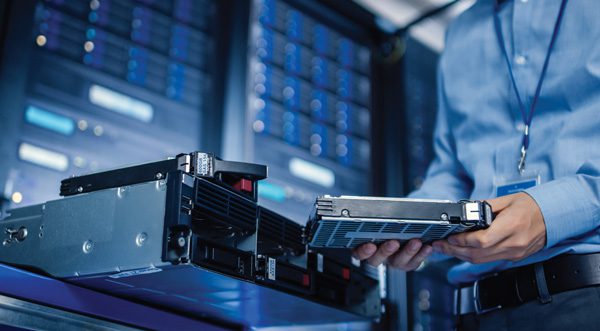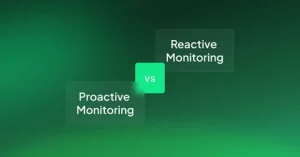Technology
Mind Over Matter: Debating the Separation of Intelligence from the Physical Body

Exploring the Boundaries of Intelligence
Intelligence has long been associated with the brain, the command center of the human body. However, recent advancements in the field of neuroscience have sparked a profound question: Can intelligence exist without a physical form? The brain-body dilemma is a complex and controversial topic that challenges our understanding of the nature of intelligence and raises intriguing possibilities for the future.
The Mysterious Relationship between the Brain and the Body
The brain is often regarded as the epicenter of human intelligence. It is a marvel of evolution, with billions of neurons firing in intricate patterns to process information, regulate bodily functions, and facilitate complex cognitive processes. But what happens when we ponder whether intelligence could exist without a physical form? Can the brain function without a body, or vice versa?
Neuroscientists have long grappled with these questions, exploring the relationship between the brain and the body in their quest to understand the essence of intelligence. Some researchers argue that the brain is the sole origin of intelligence, as it processes information and generates consciousness. Others posit that the body, with its sensory organs, plays a crucial role in shaping intelligence by providing a framework for perceiving and interacting with the world.
Unraveling the Enigma of Artificial Intelligence
The emergence of artificial intelligence (AI) has added a new dimension to the brain-body dilemma. With rapid advancements in AI technology, machines are now capable of performing tasks that were once exclusive to human intelligence, such as language processing, decision-making, and problem-solving. AI systems do not possess a physical form, yet they exhibit remarkable intelligence in specific domains.
This has led to debates about the nature of intelligence and whether it can exist without a physical body. Some argue that AI demonstrates that intelligence can indeed transcend physical form, as machines with no biological bodies are capable of complex cognitive processes. Others maintain that AI is limited and cannot replicate the full range of human intelligence, which is intrinsically linked to our physical bodies.
The Ethical and Philosophical Implications
The brain-body dilemma has profound ethical and philosophical implications. If intelligence can exist without a physical form, it challenges our perception of what it means to be human. It raises questions about the essence of consciousness, the nature of identity, and the boundaries of life itself. Furthermore, it prompts us to consider the ethical implications of creating artificial beings with intelligence and consciousness.
From a philosophical perspective, the brain-body dilemma invites us to reflect on longstanding questions about the mind-body relationship, such as the mind-body dualism proposed by philosophers like Descartes. It forces us to reevaluate our understanding of intelligence, consciousness, and the nature of reality.
Unlocking the Secrets of the Brain-Body Dilemma
Despite the complexity of the brain-body dilemma, researchers are making significant strides in unlocking its secrets. Cutting-edge studies in neuroscience, cognitive science, and AI are shedding light on how the brain and body interact to generate intelligence. Advances in brain-computer interfaces are enabling new ways of interfacing the brain with external devices, raising possibilities for enhancing human intelligence or even creating entirely new forms of intelligence.
However, many questions remain unanswered, and the brain-body dilemma continues to be a subject of intense debate and speculation. As our understanding of the brain and the nature of intelligence evolves, we are poised to unravel more mysteries and unlock new frontiers in our quest to decode the brain-body dilemma.
Care
Enhance Your Career with the OSHA Industrial Safety Course

Introduction
Safety at work is a need in the contemporary industrial and construction industries which are experiencing rapid expansion. The manufacturing sectors also require skilled workers who are conversant with the international safety measures as well as preventing accidents before they occur. This is whereby the OSHA Industrial Safety Course in Rawalpindi comes in.
United College of Technology is pleased to provide a single and career oriented OSHA course in Rawalpindi that is intended to incorporate the current industry demand and global safety measures. This course is best suited to students, individuals, and organizations that would wish to enhance workplace safety and compliance.
What Is OSHA and Why Is It Important?
OSHA is an acronym of Occupational Safety and Health Administration, which is an internationally acclaimed author that establishes the safety standards in the places of work. OSHA guidelines have been used to minimize workplace hazards, injuries, and in favor of a robust safety culture in industries like:
- Construction
- Manufacturing
- Oil & Gas
- Engineering
- Power Plants
- Factories and Warehouses
Students can obtain real knowledge about rules of industrial safety which are recognized in the world by attending an OSHA course in Rawalpindi.

OSHA Industrial Safety Course in Rawalpindi – Course Overview.
United College of Technology provides the OSHA Industrial Safety Course in Rawalpindi that concentrates on the practical aspects of safety concerns in an industrial setting. The course involves both theoretical and practical studies to make sure that everything is understood.
Key Learning Areas Include:
- Detection of hazards in industries.
- Risk evaluation and management.
- The prevention of accidents at work.
- Safety signs and symbols
- Personal Protective Equipment (PPE).
- Fire and emergency response.
- Safety of electricity and mechanical.
- Standards of health and environmental safety.
The course is an OSHA in Rawalpindi course which is appropriate to both the novice and the already established professionals in need of certification regarding safety.
Why United College of Technology to take OSHA Course in Rawalpindi?
The selection of the appropriate institute is of important concern to quality education and progress of career. United College of technology is among the most reputable technical colleges that provide professional courses in terms of safety in the city of Rawalpindi.
The advantages of studying at United College of Technology are as follows:
- Well trained, professional teachers.
- Industry-relevant curriculum
- On-the-job training model.
- Affordable course fees
- Recognized OSHA certification.
- Career guidance and support
We would like to have qualified safety professionals who are capable of fulfilling both local and international industry requirements.
Career Scope Following OSHA Industrial Safety Course.
On finishing the OSHA Industrial Safety Course in Rawalpindi, students have an opportunity to take different jobs in the sphere of safety in Pakistan and other countries.
Career Opportunities It includes:
- Safety Officer
- Supervisor of industrial safety.
- HSE Officer
- Site Safety Inspector
- Safety Coordinator
- Health and Safety Manager (experienced).
The OSHA-certified professionals are in high demand particularly in the construction work, factories, and multinational enterprises.
Who Can enroll in OSHA Course in Rawalpindi?
The course is an OSHA program in Rawalpindi that is accessible to a large group of learners, and they include:
- Fresh students
- Diploma holders
- Engineers
- Site supervisors
- Technicians
- Factory workers
- Safety professionals
There is no higher education level needed and this is why it is easy to use and accessible to any person interested in workplace safety.
Experiential Training and Industry-Based Learning.
We are of the opinion that theory is not as valuable as practice is at United College of Technology. The OSHA Industrial Safety Course of Rawalpindi has real life case studies, safety drills and analysis of hazards to equip the students with the real work conditions.
Such practical method enables students to be able to use safety regulations with a lot of confidence in their job sites and industrial workplaces.
The importance of OSHA Certification in Pakistan and Europe.
The employers nowadays are attracted to the candidates who have professional safety certification. An OSHA course in Rawalpindi is not only one that is going to enhance your knowledge of safety but also improve your CV and employment opportunities.
The certification of OSHA demonstrates that you:
- Know the international standards of safety.
- Can reduce workplace risks
- Trained to deal with emergencies.
- Appreciate health and safety compliance.
- That would make you a valuable investment in any company.
Conclusion
The industrial Safety Course provided by the OSHA in Rawalpindi by United College of Technology is a good chance to have a good career in industrial and workplace safety. As more industry expands, the need to have professional safety workers is more than ever.
Studying this OSHA course in Rawalpindi you obtain internationally accepted knowledge, practical skills and get better employment opportunities not only in Pakistan but also in the abroad. United College of Technology is the place to begin in case you are serious about safety, professionalism and career development.
Computer Electronic
IT Hardware Management: Reactive to Proactive Resilience

A mission-critical file server’s storage controller fails during peak business hours. The manufacturing floor’s specialized workstation crashes, halting production. The CEO’s laptop—containing tomorrow’s investor presentation—displays the ominous blue screen of death. In each scenario, the organizational reflex is identical: an urgent, costly scramble for break/fix IT equipment repair services.
This crisis-driven moment defines the reactive hardware support model—a vicious cycle of operational panic, unbudgeted capital expenditure, and productivity paralysis that treats essential business assets as disposable commodities. While Break-Fix Repair & Maintenance Services for hardware present a seemingly straightforward “fix what’s broken” solution, this approach is fundamentally incompatible with modern business continuity requirements.
It operates on the dangerous premise that the failure of mission-critical equipment is an acceptable operational risk. In reality, reliance on break/fix IT equipment repair services creates significant business vulnerability, sacrificing predictability for perpetual risk and transforming capital assets into operational liabilities.
The strategic evolution forward replaces this reactive stance with a proactive, intelligence-driven approach to comprehensive hardware lifecycle management.
The True Economics of Reactive Hardware Management
The perceived cost-efficiency of paying only for necessary repairs disintegrates under comprehensive financial and operational analysis. The true total cost of ownership (TCO) for hardware under a break/fix model extends far beyond the repair invoice to include direct costs, indirect impacts, and significant strategic opportunity losses that directly affect the bottom line.
- Unbudgeted Capital Shock and Cost Escalation: Hardware repair expenses are notoriously unpredictable and can vary dramatically. The Average IT Help Desk Cost for emergency, component-level repair—particularly with expedited parts shipping, diagnostic fees, and after-hours labor premiums—can rapidly approach or even exceed the depreciated value of the device itself. A critical server requiring a specialized RAID controller, proprietary motherboard, or emergency data recovery service can generate a five-figure repair bill with zero advance notice, devastating quarterly operational budgets and forcibly diverting capital from revenue-generating growth initiatives.
-
The Compounding, Multiplicative Cost of Hardware-Induced Downtime: The most significant expense in hardware failure is rarely the repair invoice itself—it’s the comprehensive business interruption the failed equipment causes. When a server hosting line-of-business applications, a network switch managing facility communications, or a specialized workstation running proprietary software fails, revenue generation and operational throughput may cease entirely.
-
The Band-Aid Cycle and Systemic Failure Ignorance: Reactive repair inherently addresses the immediate symptom while systematically ignoring systemic causation and environmental factors. A repeatedly failing power supply in a workstation is replaced, but if the root cause is unstable building voltage, an inadequate UPS, or excessive thermal load in the workspace, subsequent failures in that device and others become statistically inevitable.
This reactive model ensures businesses remain trapped in a constant, costly cycle of hardware crisis response. The proactive managed alternative is architecturally designed from the ground up to anticipate, prevent, and strategically manage hardware through intelligence, automation, and lifecycle planning.

The Intelligence-Based Paradigm: Proactive Hardware Health and Performance Management
The critical technological and operational advancement beyond break/fix is the strategic application of persistent, diagnostic monitoring and analytics to hardware itself. Modern Network Monitoring Services extend far beyond simple network traffic analysis to include comprehensive hardware telemetry—the continuous collection and analysis of vital signs from your physical infrastructure assets.
A sophisticated Managed NOC Services provider leverages these advanced capabilities to monitor the holistic health, performance, and environmental conditions of servers, storage arrays, network switches, power distribution units, and endpoint devices. They implement monitoring that tracks critical, predictive metrics including:
Comprehensive SMART Data & Advanced Storage Analytics:
Predicting storage failures long before data loss occurs through continuous analysis of read/write error rates, reallocated sector counts, seek error rates, spin-up time, and temperature thresholds for both HDDs and SSDs.
Granular Component Thermal Oversight & Evaluation:
Memory Integrity Metrics & Error Correction Code (ECC) Monitoring:
Detecting correctable memory errors (CEMs) and tracking their progression toward uncorrectable errors (UCEs) that signal failing RAM modules, enabling replacement before system crashes and data corruption occur.
Power Supply Unit (PSU) Evaluation & Predictive Failure Assessment:
Tracking voltage rail consistency, current load, output power, and PSU fan performance indicators for evidence of deterioration, capacitor aging, or potential failure that could cause sudden device shutdown or damage connected components.
Predictive Fan Failure Analysis & Acoustic Signature Monitoring:
Tracking fan RPM deviations, bearing vibration patterns, and acoustic signatures that indicate bearing wear, motor failure, or imbalance, allowing for scheduled maintenance before thermal emergencies occur.
Hardware Performance Baselining & Anomaly Detection:
Establishing performance baselines for CPU utilization, disk I/O, and network throughput at the component level to identify subtle deviations that may indicate hardware degradation, firmware issues, or incompatible driver problems before they impact user experience.
This predictive and diagnostic capability undergoes revolutionary enhancement through the integration of artificial intelligence and machine learning. AI in proactive NOC support analyzes vast streams of hardware telemetry across your entire device fleet to identify subtle failure patterns, correlation between environmental factors and component health, and predictive indicators that are completely invisible to human observation or threshold-based alerting. AI-powered network operations, increasingly referred to as AIOps for network monitoring, deliver transformative, business-critical advantages:
Predictive Hardware Malfunction Analytics & Remaining Useful Life (RUL) Estimation:
Fleet-Wide Health Benchmarking, Pattern Recognition & Cohort Analysis:
AI performs sophisticated analysis to identify whether devices from specific manufacturing batches, hardware models, deployment locations, or usage profiles are exhibiting similar failure precursors. This enables proactive, fleet-wide remediation strategies—such as preemptive firmware updates, environmental adjustments, or batch replacements—for entire asset groups before widespread failures impact business operations.
Automated Response Systems & Workflow Coordination for Hardware Notifications:
Financial Architecture
The financial management and accounting treatment of hardware undergoes a dramatic and beneficial transformation between these two fundamentally different approaches.
Break/Fix = Unplanned, Unpredictable Capital Expenditure (CapEx) Spikes:
Every major hardware repair represents an unbudgeted, unpredictable capital hit. Financial planning and forecasting become practically impossible when a single catastrophic hardware failure can consume an entire year’s allocated IT hardware budget in one emergency transaction. This represents a high-risk, reactive financial model that treats IT hardware as a volatile liability with no spending predictability.
Managed Services = Predictable Lifecycle Management & Strategic Operational Investment:
Hardware health management becomes an integrated component of a predictable, stable operational expense (OpEx). Transparent NOC services Pricing includes proactive hardware monitoring, health analytics, and often leverages the provider’s bulk purchasing power and vendor partnerships for enhanced warranty terms, accelerated replacement services, and cost-effective refresh cycles.
This modern approach enables accurate long-term forecasting, smooth, budgeted hardware refresh cycles, and optimal asset utilization. It transforms unpredictable capital expenditure surprises into managed, strategic operational investments. Organizations gain complete strategic control and predictability over IT Help Desk Services Pricing and costs related to hardware through proactive lifecycle management.
Making the Strategic Shift
Organizations that are strategically evaluating their approach to IT hardware management should employ the following assessment framework:
Clear Indicators of Reactive, Costly Hardware Management:
-
Hardware failures represent frequent, unplanned events that escalate into operational crises and executive-level emergencies.
-
Annual hardware repair and replacement budgets are unpredictable, routinely exceeded, and a source of significant financial variance.
-
No centralized, actionable data repository exists regarding organizational device ages, warranty statuses, maintenance histories, or failure rate analytics.
-
IT personnel spend a significant, unbudgeted portion of their time on emergency component diagnostics, replacement, and associated logistics rather than strategic work.
Defining Hallmarks of a Proactive, Strategic Hardware Management Posture:
-
You receive and review regular reports on hardware health scores, performance trends, predicted failure timelines, and recommended lifecycle actions.
-
Hardware refreshes and upgrades occur as planned, budgeted business events rather than emergency, unbudgeted purchases.
-
Your provider delivers proactive alerts regarding deteriorating hardware conditions, compatibility issues, or security vulnerabilities before failure or exploitation occurs.
-
Hardware is treated as an integrated, strategically managed component within a comprehensive service level agreement (SLA) focused on business outcomes, not just device uptime.
Conclusion
Relying on break/fix IT equipment repair services represents a conscious strategic choice to accept inevitable, disruptive failure as a cost of doing business. It institutionalizes unplanned downtime, financial shock, and constant operational firefighting as standard consequences of technology ownership. For modern businesses operating in competitive, digital-first markets, this constitutes an untenable operational risk that directly threatens revenue, reputation, and strategic agility.
Computer Electronic
Future of Browsing: Risks and Benefits of AI Browsers

AI browsers are being promoted as the future of web browsing. They promise faster searches, instant summaries, and automated actions that reduce manual effort. For many users, this sounds like a clear upgrade over traditional browsers.
But behind the convenience lies a growing concern among security experts. AI browsers do more than display content. They observe behavior, analyze context, and sometimes act without direct input. That shift has triggered serious questions about safety, privacy, and control.
Why AI Browsers Feel So Powerful
AI browsers are designed to assist rather than wait. They read pages, understand intent, and try to help users complete tasks faster. This can include summarizing long articles, filling forms, or navigating complex websites automatically.
The power of these browsers comes from their ability to process large amounts of information in real time. To do that, they need deep access to browsing activity. That is where the risk begins.

Experts Are Concerned About Control Loss
Security professionals often point to one key issue. Control is slowly moving away from the user.
In a traditional browser, every action requires a click or input. In an AI browser, many actions happen automatically. When a system starts making decisions on your behalf, it becomes harder to see what is happening behind the scenes.
This lack of visibility makes it difficult to detect mistakes or malicious behavior early.
Broad Permissions Create a Large Attack Surface
Most AI browsers require wide permissions to function properly. They often request access to all tabs, all websites, and full page content.
Once approved, these permissions apply everywhere, including sensitive areas such as email, cloud dashboards, and financial accounts.
Experts worry that a single weakness could expose far more data than in a traditional browsing setup.
Automation Removes Natural Safety Checks
Automation is a major selling point of AI browsers. Tasks are completed faster, and users spend less time clicking through pages.
However, automation removes the pauses that normally help users notice suspicious behavior. Manual browsing forces attention. Automated browsing reduces it.
When something goes wrong, users may not realize it until the damage is already done.
A Scenario That Explains the Risk Clearly
Imagine you go to a website to download APK. A hacker puts a secret script into the page. The AI browser scans the page to summarize it and automatically interacts with elements it believes are helpful. That interaction activates the hidden script, which silently captures session data from another logged-in tab. The page looks normal, but access has already been compromised.
This kind of risk comes from automation combined with excessive access, not from careless users.
Privacy Risks Build Over Time
AI browsers learn continuously. They track what users read, search for, and interact with. Over time, this creates detailed behavioral profiles.
Even when data is anonymized, patterns can reveal habits, preferences, and sensitive interests. Experts warn that long-term data collection increases exposure, especially if data is stored or processed remotely.
Cloud Processing Raises Additional Concerns
Many AI browser features rely on cloud-based servers. Page content, interaction signals, or contextual data may be sent outside the device for analysis.
Each additional system handling user data becomes another potential point of failure. Experts worry that users often underestimate how far their data travels.
Work and Personal Browsing Should Not Mix
Security professionals strongly advise against using AI browsers for sensitive work environments.
AI-level access to admin panels, internal dashboards, or cloud tools can create serious compliance and security issues. Mixing casual browsing with critical systems increases the risk of accidental exposure or automated mistakes.
Why Default Settings Are Not Enough
Many AI browsers advertise privacy-focused features, but these features often depend on user configuration. Default settings usually prioritize convenience.
Experts point out that most users never review advanced permissions. Over time, permission prompts become routine, and broad access remains enabled indefinitely.
Attackers Are Adapting to AI Browsing
Attackers are no longer focused only on tricking users. They are learning how to influence AI behavior.
By manipulating page structure or content, attackers can guide AI browsers into interacting with malicious elements automatically. This creates a new attack surface that did not exist with traditional browsers.
Are AI Browsers Worth the Risk Right Now
Experts do not agree on a single answer. AI browsers are not inherently unsafe, but they require careful use.
For general browsing and research, the risk may be acceptable. For banking, enterprise systems, or sensitive accounts, most experts advise caution or avoidance.
The technology is powerful, but power without visibility is dangerous.
How Experts Recommend Using AI Browsers Safely
Experts suggest limiting AI browser use to low-risk activities. Sensitive tasks should be handled in separate browsers or isolated profiles.
Permissions should be reviewed regularly. Automation features should be disabled when not needed. AI browsers should assist users, not replace decision-making.
The Future Outlook According to Security Experts
AI browsers will continue to evolve. They will become more autonomous and more deeply integrated into daily workflows.
Experts believe regulation, transparency, and stronger security controls will be necessary to build trust. Without these safeguards, concerns about privacy and security will continue to grow.
Conclusion
AI browsers offer impressive capabilities, but they also introduce new risks that many users are not prepared for. Automation, broad permissions, and cloud processing shift control away from users in subtle ways.
Are AI browsers worth the security risk? Experts remain cautious. Until transparency and control improve, users should think carefully before trusting This browsers with sensitive tasks. Convenience should never come at the expense of security.
FAQs
Are AI browsers more dangerous than traditional browsers?
They introduce new risks due to automation and deeper access, even if they are not malicious by design.
Can AI browsers access sensitive information?
Yes, depending on permissions and how they are configured.
Should AI browsers be used for work systems?
Most experts advise against it unless strict separation and controls are in place.
Do AI browsers store browsing behavior long-term?
Many retain contextual data to improve performance, which increases exposure over time.
What is the safest way to use an AI browser?
Use it for general browsing only and avoid sensitive or critical activities.
-
Business3 years ago
Cybersecurity Consulting Company SequelNet Provides Critical IT Support Services to Medical Billing Firm, Medical Optimum
-
Business3 years ago
Team Communication Software Transforms Operations at Finance Innovate
-
Business3 years ago
Project Management Tool Transforms Long Island Business
-
Business2 years ago
How Alleviate Poverty Utilized IPPBX’s All-in-One Solution to Transform Lives in New York City
-
health3 years ago
Breast Cancer: The Imperative Role of Mammograms in Screening and Early Detection
-
Sports3 years ago
Unstoppable Collaboration: D.C.’s Citi Open and Silicon Valley Classic Unite to Propel Women’s Tennis to New Heights
-
Art /Entertainment3 years ago
Embracing Renewal: Sizdabedar Celebrations Unite Iranians in New York’s Eisenhower Park
-
Finance3 years ago
The Benefits of Starting a Side Hustle for Financial Freedom






























